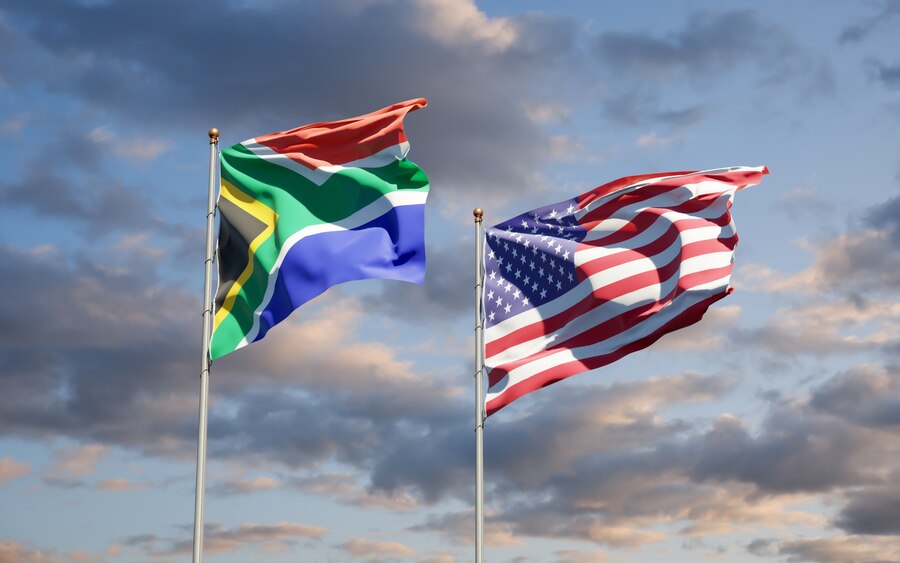By Johnathan Paoli
Following the conclusion of the US elections and the upcoming inauguration of president-elect Donald Trump, South Africa will ultimately have to consider a balancing act between its relationship with the West and the East.
They country straddles two sources of power, being the biggest beneficiary of the African Growth and Opportunity Act (Agoa) agreement with the US, while simultaneously being a founding member of Brics and an increasingly important trade partner with China.
Inside Politics spoke to American-born Programme Director for the Diaspora Project at the African Centre for the Study of the United States at the University of the Witwatersrand, Asad el-Malik, on the possible impacts of Trump’s win on South Africa.
“Every nation, South Africa included, must act in its own best interest, ensuring that diplomatic and economic engagements reflect its priorities for growth, stability and regional influence,” el-Malik said.
He said this balancing act would require South Africa to prioritise its own national interests, including economic stability, regional security and infrastructure development, while maintaining diplomatic flexibility and leveraging multiple global relationships to ensure its continued growth and influence.
Since its enactment in 2000, Agoa has been at the core of trade and investment policy between the two countries, with the June Agoa biennial report indicating that US imports to the country were estimated at R126.7 billion last year, while exports from South Africa stood at R24.6 billion.
However, the rivalry of China cannot be ignored, with South Africa having recorded R812.34 billion of exports and R767.15 billion of imports for the first five months of the year.
Additionally, trade between China and South Africa is set to grow further after several announcements on trade were made at Brics last year, with the two countries agreeing to narrow the trade deficit by increasing access to Chinese markets for South African products.
el-Malik said that if the US took a step back from active engagement in Africa, South Africa may increasingly look to strengthen its relationships with other global powers, particularly China and Russia.
Both countries have been ramping up their influence on the continent, offering new economic partnerships, investments and diplomatic support in exchange for South Africa’s alignment on certain international issues.
el-Malik emphasised South Africa’s Brics position, underscoring its commitment to a more multipolar world, and one that was less reliant on Western powers.
He said the country’s efforts to navigate the complex political and economic dynamics of the global south, including its engagements with China, Russia and other emerging economies, could put it at odds with US policies that favoured Western-style governance or sought to limit eastern influence in Africa.
Despite these potential challenges, South Africa remained a highly strategic player in Africa, and its leadership would likely continue to carefully balance its historic ties with the US against its growing partnerships with the east and global south.
“This shift could deepen South Africa’s alignment with these countries, impacting US leverage and economic influence in the region,” he said.
He highlights that in this era of shifting geopolitics, South Africa has the opportunity to assert its role as a leader in Africa, promoting a multipolar world that reflects the diversity and complexity of the continent’s needs and aspirations.
“South Africa can balance its historic ties with the US alongside its growing partnerships with China, Russia and other global powers by strategically aligning its relationships to serve its national interests,” el-Malik said.
The outcome of the 2024 US election has set the stage for a potential recalibration of US-South Africa relations, especially if the incoming administration adopts a possibly more transactional approach.
For South Africa, this could mean a more uncertain future with respect to trade, economic partnerships and diplomatic engagement.
However, el-Malik stresses that as the country continues to deepen ties with Brics nations and pursue its own regional agenda, it will undoubtedly seek to maximise its strategic leverage in a rapidly changing world.
INSIDE POLITICS

